The TIE/Ln's engine was one of the most precisely manufactured propulsion systems in the galaxy and, with no moving parts, was low-maintenance. Unlike the TIE before it, the TIE/Ln sported independent generators for the engine and the weapons. The lack of combat shields, hyperdrive, and life-support systems, in concert with the advanced engine design, reduced the mass of the fighter and conferred exceptional maneuverability. This also made them both inexpensive and quick to replace.
Primary armament was a pair of L-s1 laser cannons, coupled with a powerful sensor suite.[17] The cannons were relatively powerful, and a well-placed hit on a starfighter or medium transport could damage or destroy it. It did not carry missile tubes, but such weapons could be added if necessary.
Due to the lack of life-support systems, each TIE pilot had a fully sealed flight suit superior to their Rebel counterparts. The absence of a hyperdrive also rendered the fighter totally dependent on carrier ships when deployed in enemy systems. TIE/lns also lacked landing gear, another mass-reducing measure. While the ships were structurally capable of "sitting" on their wings, they were not designed to land or disembark their pilots without special support. On Imperial ships, TIEs were launched from racks in the hangar bays.
Power conduits were attached between the engine system and the solar arrays.[17]
TIEs were designed to attack in large numbers, overwhelming the enemy craft. Standard attack squadrons consisted of 12 fighters while full attack wings were made up of six squadrons.[30] The Imperials used so many that they came to be considered symbols of the Empire and its might. They were also very cheap to produce, reflecting the Imperial philosophy of quantity over quality.
Contrary to popular belief, the ships did possess ejection seats, but the nature of space warfare often resulted in pilots riding their craft down to a swift end rather than ejecting and risking slow death by heat loss and oxygen starvation in the vacuum of space.
The design choices of the TIE/Ln could arguably be explained by Imperial military philosophy, which viewed the starfighters and their pilots as an expendable asset. Though Imperial pilots were of an elite stock, they were also expected to consider themselves expendable, in accordance with their ideological training.
Other Imperial pilots considered TIE Fighter pilots to be suicidal due to how expendable the starfighters were.[17]
A TIE Fighter cross-section
Like stormtroopers, TIE pilots had their own identification, such as DS-61-2 (the first two letters indicated the posting, the next two or three digits indicated the squadron number, and the last number indicated the pilot's ranking in the squadron). This procedure reduced them to being no more than anonymous and standardized operatives of the Imperial war machine. This attitude was further reflected by the lack of any sentimental attachment to particular TIEs by TIE pilots, unlike Rebel pilots who often grew attached to their craft. As far as they were concerned, every fighter, whether reconditioned or factory-fresh, was identical.
A disadvantage of the fighter was its lack of deflector shields. In combat, pilots had to rely on the TIE/Ln's maneuverability to avoid damage. The cockpit did incorporate crash webbing, a repulsorlift antigravity field, and a high-g shock seat to help protect the pilot, however these did next to nothing to help protect against enemy blaster fire.[7] However, despite this lack of protection, the fighter was at least able to survive glancing hits, such as when the quad laser cannons on the Millennium Falcon were able to hit a TIE fighter without actually destroying it.
The TIE/Ln starfighter's eponymous twin ion engines are also notoriously easy to sabotage; all it takes is moving an energizer out of alignment for a TIE's recharge systems for them to become time bombs.[31]
The side view of a TIE/Ln's radiator panels curiously radiator panels curiously resembles the emblem of the Confederacy of Independent Systems, but it is not clear if the similarity was intentional. The front/rear cross-section of the fighter was designed to be small to make it difficult to hit with blasters, but these side panels proved easy targets for flanking enemy pilots.[7] They also hampered the fighter's ability to maneuver while in the atmosphere. Due to their distinct shape, TIE/Ln came to be referred to occasionally as "eyeballs" by enemy pilots.[32]
——wookieepedia
im to lazy to write something
Specifications
Spotlights
- SpicyViper 6.7 years ago
- Rodrigo110 6.7 years ago
- Shootingstar07 6.7 years ago
- Colonel1J2R3Wolf 6.7 years ago
- POMPAJ 6.7 years ago
- Teemous 6.7 years ago
- MIWTheGamer 6.7 years ago
- Hypn0 6.7 years ago
General Characteristics
- Successors 2 airplane(s)
- Created On Android
- Wingspan 25.0ft (7.6m)
- Length 17.4ft (5.3m)
- Height 27.1ft (8.3m)
- Empty Weight 5,717lbs (2,593kg)
- Loaded Weight 5,886lbs (2,669kg)
Performance
- Power/Weight Ratio 0.572
- Wing Loading 6.0lbs/ft2 (29.2kg/m2)
- Wing Area 984.2ft2 (91.4m2)
- Drag Points 17250
Parts
- Number of Parts 118
- Control Surfaces 4
- Performance Cost 335

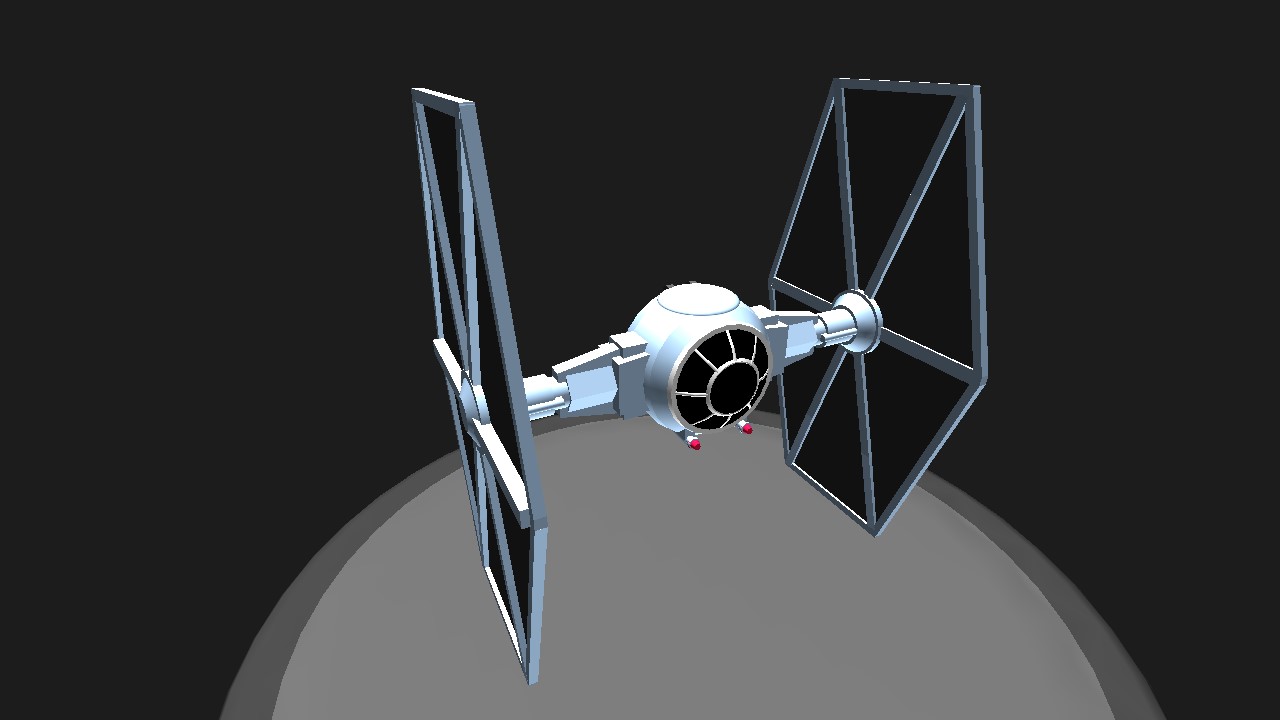
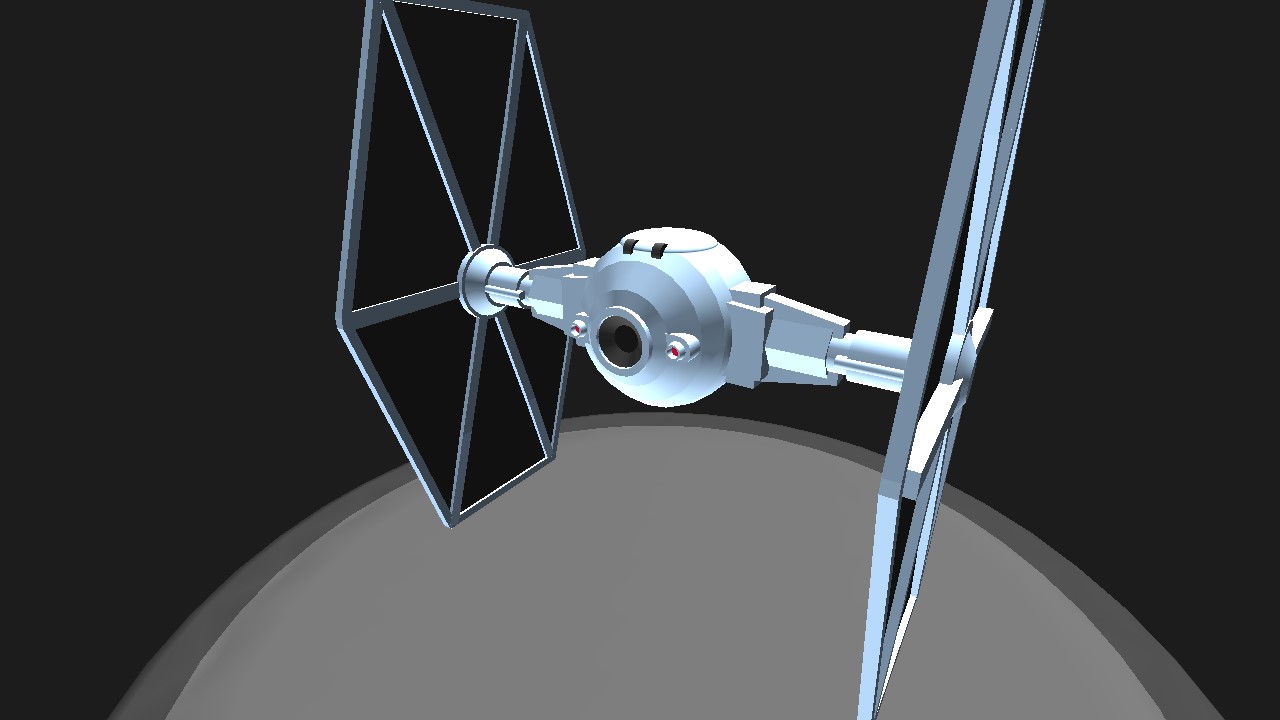
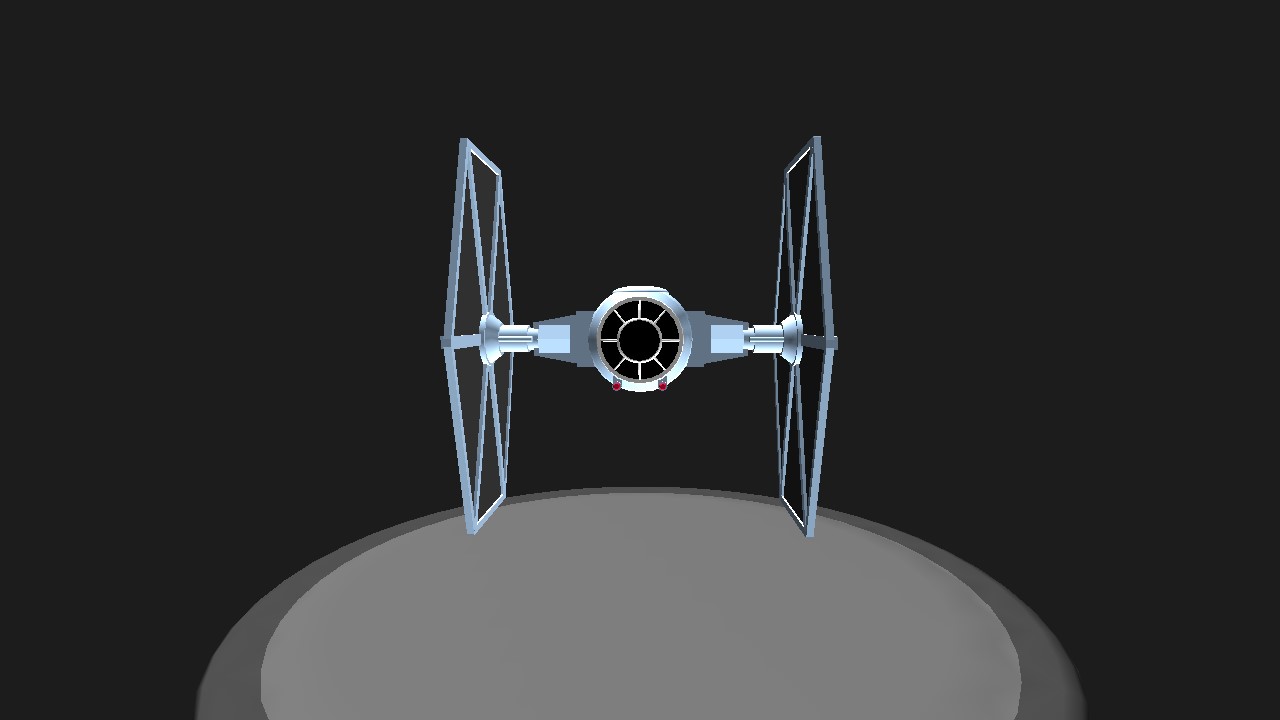
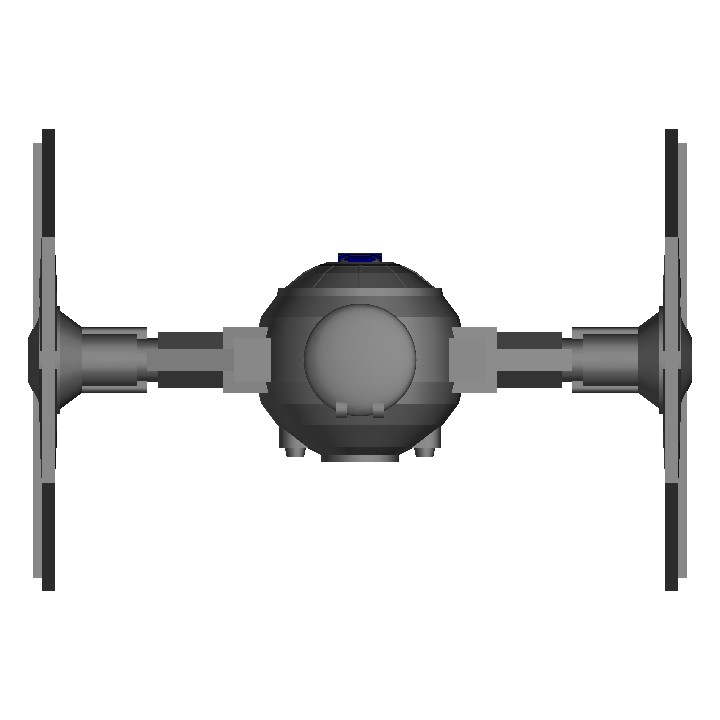
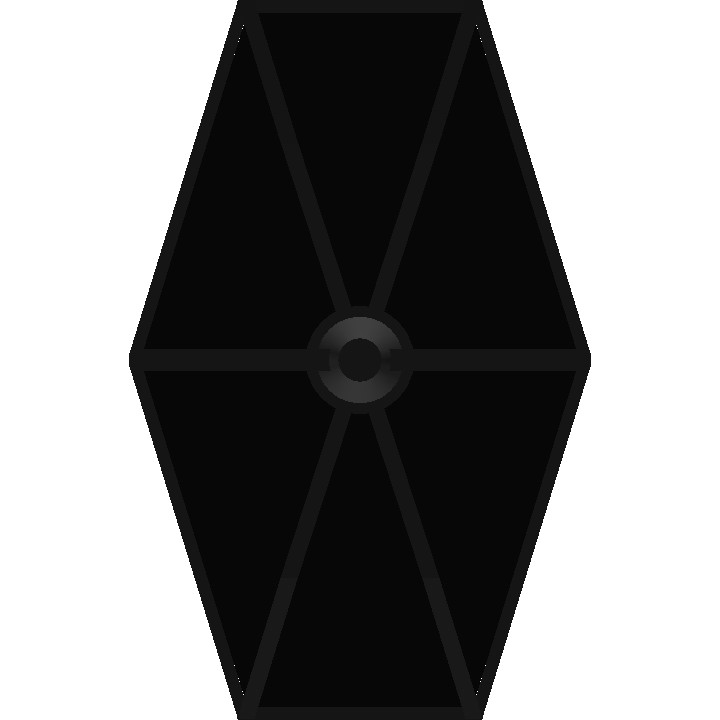
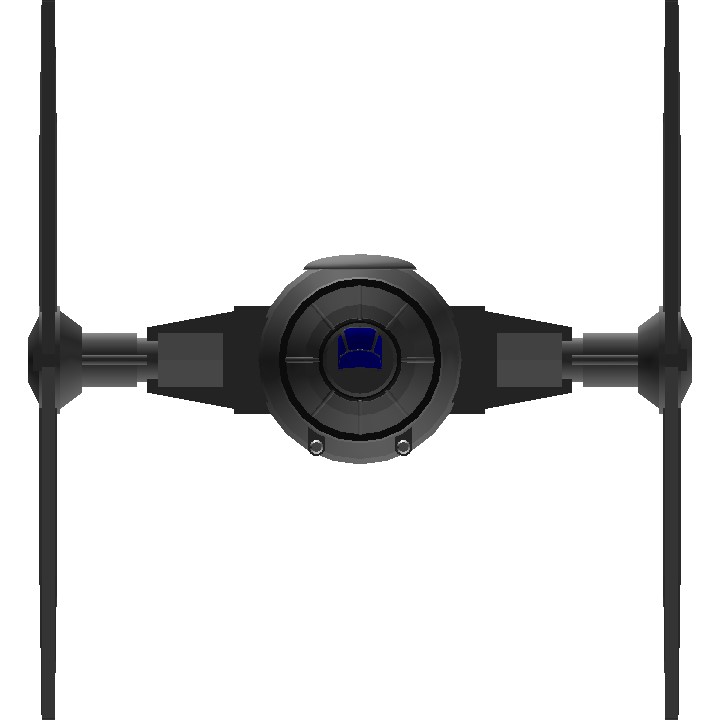
@SakuraSaku 呐
OwO
What's this?
Another TIE fighter?
:D
@Windy2325 lol. Guten Nacht.
@MIWTheGamer ahha thanks!(。・ω・。)ノ♡
@Windy2325 This only has SIX UPVOTES???? You made this on ANDROID, this needs more upovotes! I will try to help you out, ;) Also, I am a girl gamer, lol.
@Shootingstar07 well……ok……
thats unbelievable……
@Windy2325 what he mean is…you don't have to thank the people who upvote you craft by @ them because some people find that annoying.(Not me)
@ainanen
as in please stop mass notifying people lmao
???
@ainanen excuse me
i……i dont understand what you say
English?
as in please stop mass notifying people lmao
@ainanen ???what?
bro quit yo pinging smh
@AceOfSpade
@ainanen
@Shootingstar07
@Teemous
@DPSAircraftManufacturer
THANK YOU ALL!!!|。・㉨・)っ♡
@Windy2325 You are welcome~
@AceOfSpade
@ainanen
@Shootingstar07
thank You all!
@JetFly err……whats the meaning of spheres,the air,or,the ball?
@JetFly or use the “outer space”mod
(ಡωಡ)
the only use for spheres